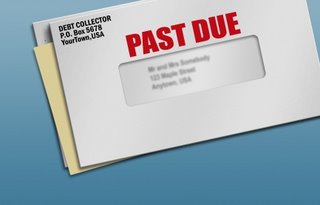
A scenario that’s playing out in far too many households could make it difficult for you to get a job.
Those who lost their employment in the massive layoffs several months ago learned quickly that unemployment benefits didn’t cover monthly expenses. Thus their savings accounts eroded quickly as they sought to keep up.
Believing that they would soon find new jobs, many failed to trim expenses as quickly or as severely as they should have. Thus, in addition to using up their savings, they went deeply into debt with credit card advances.
While those advances did harm their credit scores, many were still able to keep making payments to everyone on time. But then – the credit card companies clamped down.
They raised interest rates, which raised minimum monthly payments. And in many cases they lowered credit lines to at or even below the cardholder’s outstanding balance. One consumer I talked with had run up $15,000 in debt against a $50,000 credit line. He was managing to keep enough money coming in to make the payments on that debt – until he opened his credit card statement and found that his credit line had dropped to $9,000 – putting him $6,000 over limit.
Fortunately, he was not one who had completely lost employment, so was able to secure a loan at a private bank and pay off the card. But others have not been in that position.
When faced with this kind of situation, they had no recourse beyond default. And now, as they still seek to find new employment, that default is coming back to haunt them.
Employers routinely check credit reports, and they’re using unfavorable reports to thin down the pool of applicants for jobs. With so many out of work, why should they take a chance on someone with a bad credit history?
When you apply for a job you’ll see if they plan to check your credit. After all, they do need your permission to do so. Experts are recommending that if you have a default resulting from a situation such as the ones we’ve described, you should mention it to your prospective employer and explain the situation. Do assure him or her that you are trying to get back on track and repay the debt, but without steady employment it has not been possible.
Trying to hide from the default will make you seem less trustworthy, while being honest about the situation may win you some points.
This is a classic catch-22. You need good credit scores to get good employment, and you need good employment in order to pay off debts and raise your credit scores.
FreeCreditScorequick.com your resource for free credit report offers and the most current information regarding credit news. We also provide free tips and techniques to repair your credit for free. “Remember your credit report and credit score is more important than ever now.”
